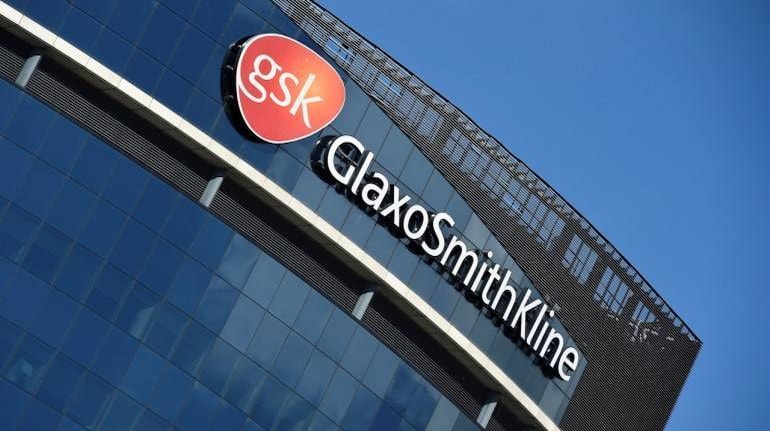GSK is betting on its adjuvant technology to support companies developing COVID-19 vaccines.
British drugmaker AstraZeneca has hit global headlines after it joined hands with the University of Oxford for the global development and distribution of the latter’s potential vaccine for COVID-19.
The company continues to hog the limelight, with the latest talk about a possible merger with US drugmaker Gilead. But AstraZeneca has been on frantic speed in raising hundreds of millions of dollars in funding and stitching deals including with Indian vaccine maker Serum Institute of India for making billions of vaccine doses.
All this for a company that's hardly known for vaccine making.
While all this is happening, its British counterpart GSK, known to be the global powerhouse of vaccines, remains more subdued.
As of now, GSK is not developing its own vaccine for COVID-19.
Ideally, people would expect the world's largest vaccine maker GSK to be in the driver seat, to lead the race to develop COVID-19 vaccine. There are reasons for those expectations; GSK earned little over $9 billion by selling vaccines in 2019; it has 30 vaccines with presence across 160 countries. The company has a pipeline of 15 potential vaccines in various stages of development. Yet, so far it has stayed away from COVID-19 race.
"If there is a company, that has a full arsenal of vaccine technologies and platforms, that's GSK," said a top executive of an Indian vaccine company who didn't want to be named.
GSK, apart from conventional vaccine technologies based on the whole pathogen (virus or bacteria) or protein subunits (antigen) of the pathogen, has capabilities to make vaccine using adenovirus as a vector. The University of Oxford vaccine is based on Chimpanzee adenovirus as a vector, known to protect animals from pneumonia. Adenoviruses cause the common cold. The virus is fused with certain proteins of SARS-COV-2 and is delivered as a vaccine. The British drugmaker is also said to possess the capability of developing an mRNA vaccine based on genetic material. Moderna, Curevac and Pfizer-BioNTech, are developing vaccines based on this platform.
Please read here to know more about Moderna mRNA vaccine
Why is GSK playing safe?
GSK said it's playing safe by sticking to something that's proven.
"There are a lot of new technologies not yet proven at the efficacy level, or not yet been fully commercialised," said François Meurice, Director Scientific Affairs and Public Health, GSK Vaccines to reporters at company's virtual press conference.
"Being responsible for research and development, you need to decide what are you going to do. Are you going to bet on new technologies, or are you going to bet on technology for which you have robust and proven demonstrated efficacy," Meurice added.
"It's a choice. I am not saying they (AstraZeneca) have made a wrong choice," Meurice further said.
GSK said there is a lot of collaboration and parallel work on manufacturing and clinical trials happening on COVID-19, but it sees 15-18 months as an extremely tight deadline or close to "miracle" to get the vaccine out. In normal times, vaccine development takes 5-15 years.
Betting on adjuvant platform
To be sure, GSK isn't sitting out of the COVID-19 vaccine value chain. The company took a different approach or rather safer one compared to its peers.
The company is betting on its adjuvant technology to support companies developing COVID-19 vaccines.
GSK partnered with the Coalition for Epidemic Preparedness Innovations (CEPI) to provide access to its adjuvant platform to help support COVID-19 vaccine candidates. So far, it has collaborated with Sanofi, Clover Biopharmaceuticals, ZFSW, Innovax and the University of Queensland, Australia. All vaccine candidates are based on protein subunits of SARS-CoV-2.
The use of adjuvant in a vaccine helps in several ways. It helps to reduce the amount of vaccine protein or antigen required per dose, enabling manufacturers to produce more vaccine doses.
This is of particular significance in a pandemic situation, where it's important to vaccinate more people. In addition, an adjuvant is expected to boost the immune response and create a stronger and lasting immunity against infections than the vaccine alone. An adjuvant is made of a certain type of lipids or fat molecules, vitamin-E or tocopherol and others.
The combination of a protein-based antigen together with an adjuvant is well-established and used in a number of vaccines available today. For instance, GSK had previously used adjuvant technology in its Shingles and H1N1 influenza vaccine. Shingles is a viral infection that causes painful rashes.
GSK said it can produce one billion doses of adjuvant for COVID-19 vaccines at its sites in the UK, the US, Canada and Europe.
"It's surprising that GSK with deep capabilities and decades of experience in vaccine development, playing a second fiddle," the above vaccine executive said.
"COVID-19 pandemic pointed out that big companies may not be agile enough in reacting fast to a situation, compared to smaller biotech companies," he added.
Moneycontrol Webinar 'Mastering the Remote Work Experience', brought to you by Microsoft on 16th June. Register Now!















